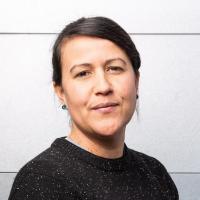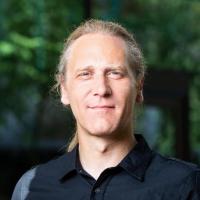What is the Audio Lab Project?
On Sun Devil Giving Day 2019 and beyond, the Department of English is embarking on a campaign to realize a state-of-the-art audio booth and recording equipment in Ross-Blakley Hall, its home on the ASU Tempe campus.
Why an audio lab?
An audio lab will help us further our vision “to explore global expressions of the English language in all media” and to “cultivate individual and collective expression.” Specifically, a lab will enable research and creative projects on intergenerational language transmission, endangered language preservation, speech recording and listening analysis required for linguistic research, creation of teaching materials, and archival data collection.
Who will use the audio lab?
We project that the lab will be used extensively by our linguistics faculty as well as by some in creative writing and literature who have interests in storytelling and in creative projects like podcasts.
Hear directly from faculty about the project:
Natalie Diaz, Associate Professor in Creative Writing and Maxine and Jonathan Marshall Chair in Modern and Contemporary Poetry | MacArthur Fellow
"A sound booth will be a great way for us to interact with and engage our Native/Indigenous students, including our local O'odham and Pee-Posh students, to find interactive ways in which they can learn and speak their language. Quality sound recordings are essential to language transmission, and this can be a place where our students records lexicons, stories, songs, even language lessons. I would love to be able to record my own Mojave language there.
In addition to Native languages, my poetry and fiction students have been exploring the idea of a podcast in which we record poems and stories and talk about them, something that will make them more accessible to people who might not be comfortable with poetry and stories, but also to make the written word more accessible in general. One of the challenges to exploring this is always trying to find the right connections outside of our department to access equipment. Having a sound booth in our own department can not only help us engage with project like a podcast, but it can also help us enhance our lesson plans and student assignments."
Tyler Peterson, Assistant Professor in Linguistics and Applied Linguistics
"2019 has been designated by the United Nations the International Year of Indigenous Languages. This was done to raise awareness of the rapid loss of the planet’s linguistic and cultural diversity. We can and should do our part to cherish, protect, and promote the many indigenous languages around the world – especially in Arizona. One tangible way is to respect these voices by creating the highest quality recordings of them that we can, for those speakers to share with their future generations, and so that we enrich our relations with our neighbors.
I have several plans for a sound booth, collaborating on major documentation and education initiatives with speakers of local indigenous languages to create high fidelity language recordings. This is also benefits our students. In the past I have held field methods classes with my students, and worked with speakers making recordings in our conference room after hours (definitely not ideal!).
More broadly, sound booths (and the labs they belong to) are an essential part of any language and linguistics program. Our department, students, and faculty are world class, so there work deserves these kinds of resources."


